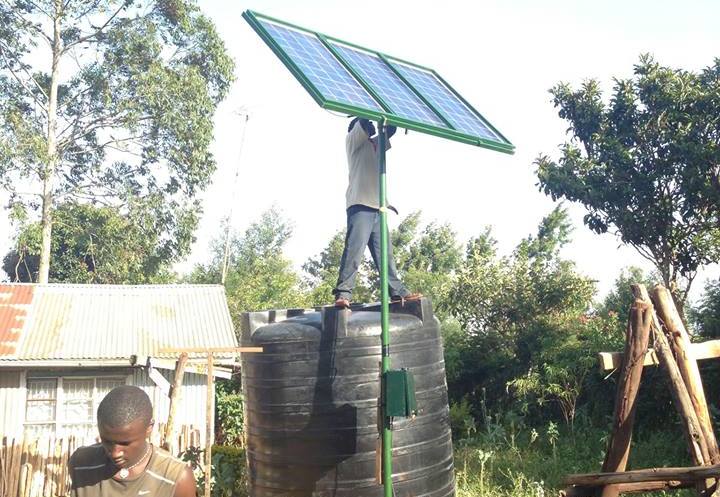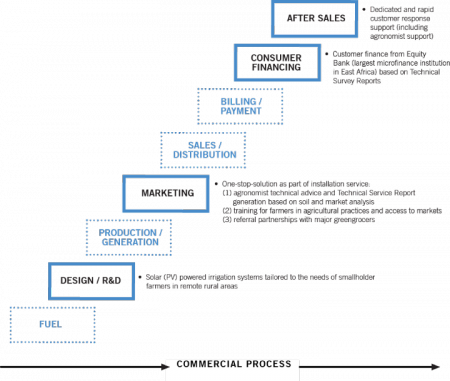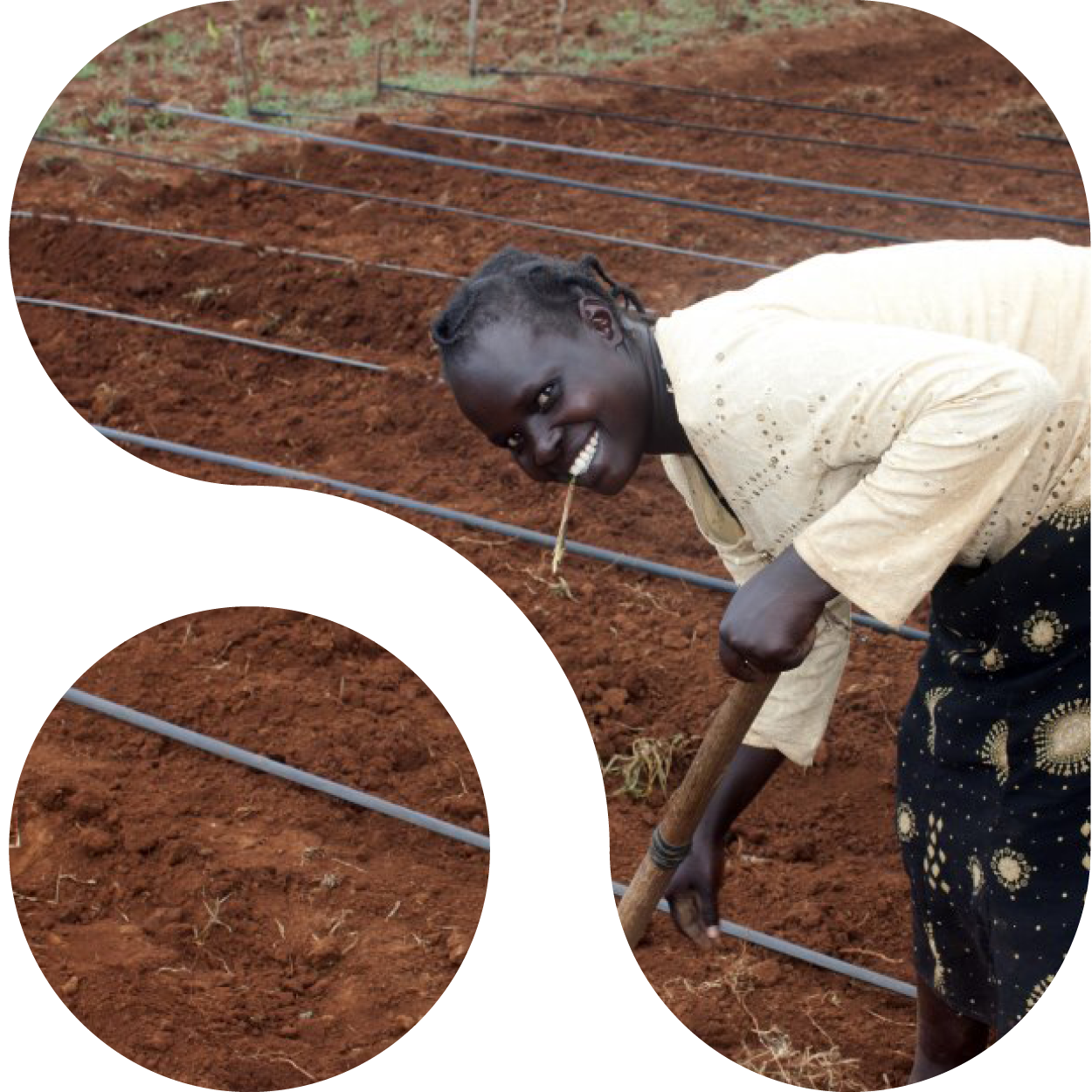- Projects & Programmes
- Solar-Powered Irrigation in Kenya: SunCulture
Our Portfolio
Solar-Powered Irrigation in Kenya: SunCulture

With the tremendous solar potential in Kenya and the maturity of PV and electric pump technology, the agricultural sector, including smallholder-level farms, is an ideal candidate for rapid growth, improving crop yields, productivity and farmer income while avoiding massive amounts of GHG Emissions.
SunCulture’s offer has to potential to jump start a market for clean irrigation that can grow to encompass the entirety of Kenya’s irrigable land. SunCulture is presenting a total value-chain solution that incorporates a technical product (pump and drip irrigation system) together with a comprehensive service offer including crop analysis, advisory, finance and technical support. Full-spectrum service is critical to overcoming gaps in understanding, know-how, and finance necessary to reaching a broad market and achieving scale.
Background
Kenya must improve agricultural production to reduce poverty, generate employment and prosperity, and feed a growing population. Currently only 4% of irrigable land is under irrigation. Irrigation is a key element of agrifood development, but current diesel-powered irrigation pumps are highly polluting and carbon intensive. Investment in alternative technologies is lacking due to gaps in finance, understanding and know-how among primary segments.
Purpose
Irrigation in general – and Solar Powered Irrigation Systems (or SPIS) in particular – can provide substantial benefits to local prosperity in regions that adopt them. The most direct benefit is the increased revenue and income that come with the greater yields of irrigated cropland vis-à-vis rain-fed land. Stable water supplies allow additional growing seasons per year, massively increasing output. Drip irrigation (a central, although not unique, element of SPIS) can save around 80% of water compared to current practices, and improves crop quality thanks to more stable supply, often improving real yields by over 300%. In addition, SPIS offer significant cost savings over time on labour, fuel and fertilizer, a total value to smallholder farmers estimated at around $14,000 per acre annually.
Economically, the benefits of increased use of SPIS translates into local opportunities beyond the agricultural boundaries, as small businesses arise to meet demand in manufacture, assembly, repair and sales of SPIS.

Main Activities
SunCulture is focusing on addressing several barriers to market scale. On the demand side, SunCulture is utilising several strategies to uncover and cultivate existing demand for solar powered irrigation, leveraging new media opportunities together with success stories from early adopters and the reach of a high profile local partner in East Africa’s largest microfinance-focused bank.
This partnership is a crucial element to reducing the perceived risk of the technology among a traditionally risk-averse market segment.
Further, SunCulture is developing its client base from a value chain perspective, combining the technology and financing offer with additional elements of market access and technical knowledge to help clients leverage improved productivity into improved incomes and quality of life.

Direct Impact for Farmers
- Cost savings in fuel, fertilizers and labor
- Increase in crop yield – up to 300%
- Water savings – up tp 80%
- Short payback time – one three month growing season
- Agricultural advisory services
- Market research
- Access to finance
- Access to markets

The Business Case for Solar Irrigation in Kenya

